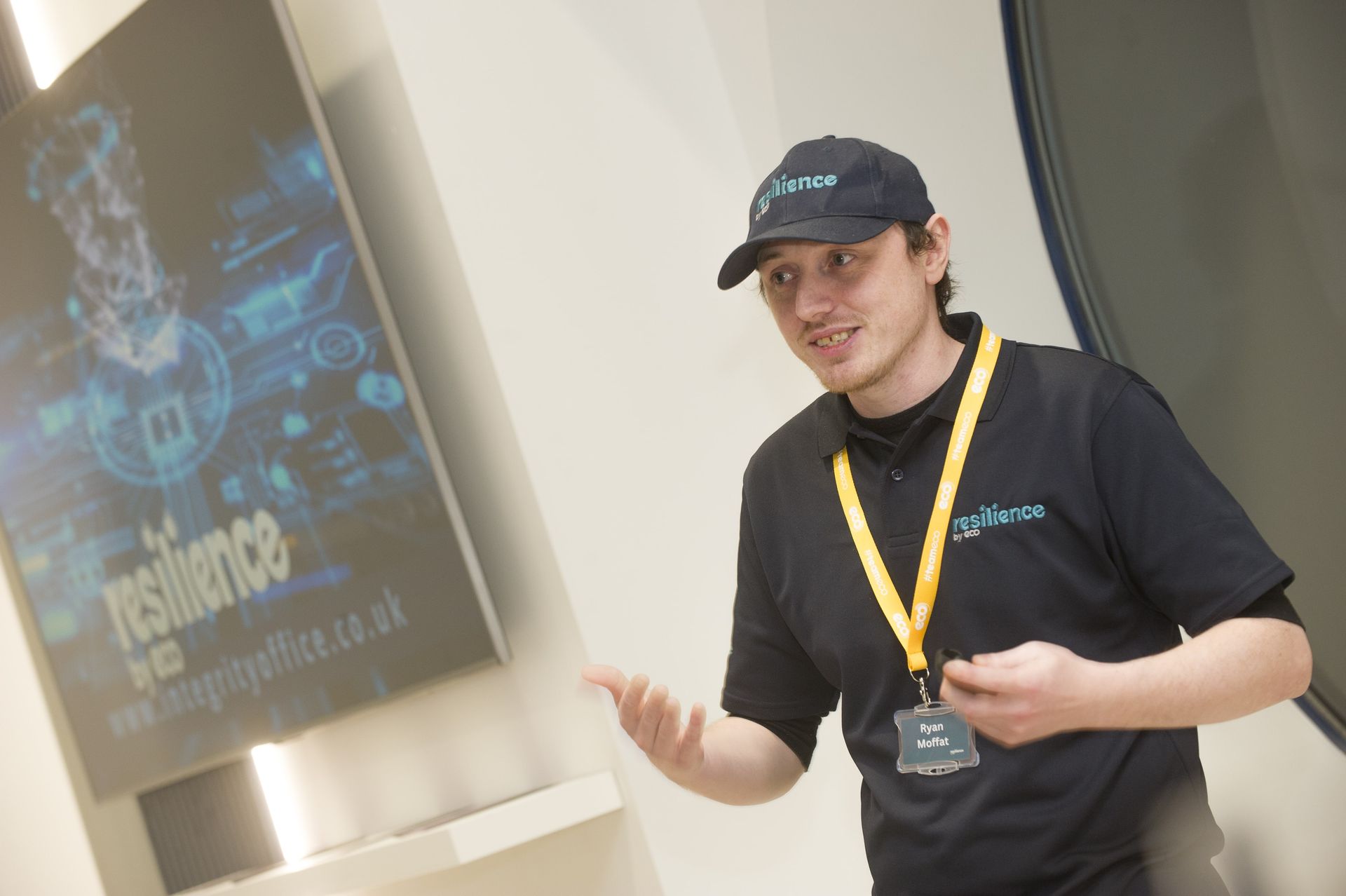Why you need a White Hat Hacker on your side - to keep your business safe

IF you are a business owner, stop and think for a second.
Who do you want by your side to protect you and your business from the ever growing menace of cyber crime which can destroy all you have worked for at the click of a button?
Think outside the box for a minute, like you ask your teams to do. You might just come up with the answer.
Someone who knows all the ins and outs, all the tricks of this malicious trade, but is also, most definitely, one of the good guys.
Step forward Ryan Moffat.
A White Hat Hacker, Ryan’s sole role is to keep your business safe.
He’s one of only a handful of graduates each year from a leading UK Ethical Hacking programme.
Ryan, who is leading Eco Group’s new Resilience division, keeps bang-up-to-date with all there is to know about the fast evolving world of cyber crime from every angle - the criminal, the police, the business owner - and knows how best to defend your business against it.
The even better news is - you can hire him, which is where the Resilience name comes from as by utilising Ryan’s expertise businesses can ensure they combat any cyber crime threat and maintain continuous operations.
When you think about cyber crime, if your attitude is: “it will never happen to me, it only happens to big businesses” you would be burying your head in the sand. You couldn’t be more wrong.
The big cyber crimes hit the headlines - and we’re all shocked when we read and hear about them.
But smaller businesses are being successfully targeted every day. You just don’t get to hear about it.
Ryan said: “It is estimated that there are approximately 10,000 attacks on UK small businesses every week.
“For every attack on big business you hear about there are thousands of attacks on smaller businesses.”

Security systems are notoriously weaker in smaller businesses so cyber criminals know there are easy, and potentially rich, pickings.
Once malicious hackers are into your system they can reach bigger targets through your data and communication trails.
They can shut your entire business down in a matter of seconds.
Imagine for a minute trying to run your business without any access to technology.
Exactly.
You can’t.
That’s why you need the very best expert young minds on your side - so you don’t even have to worry about it.
Ryan said: “As part of cybersecurity education, I have delved deep into the realms of offensive security, learning the intricacies of vulnerability and penetration testing, and digital forensics.
“This education was’t just about acquiring knowledge; it was about understanding the mindset of cybercriminals to better defend against their tactics.
“Students like myself, studying ethical hacking, gain practical skills in identifying and mitigating vulnerabilities, ensuring the integrity, confidentiality, and availability of information and systems.
“This field requires a continuous learning mindset due to the ever-evolving nature of security threats and the technologies designed to counteract them.”
Now Ryan has finished his final year exams at Abertay University in Dundee he is available to utilise the very latest learning in how to combat cyber criminals to help keep your business safe.
Ryan is working for Eco Group which supports businesses throughout the UK in the public, private and third sectors from its bases in Carlisle, Cumbria and Annan in Dumfries and Galloway.
Heading up Eco’s Resilience division he advises businesses and organisations on the best way to avoid a cyber attack.
He will consult with you, agree the range of his scope, and then put your security systems to the test, and report back on his findings.
Follow-up advice will include steps you and your business can take to ensure any issues are tackled head-on and your business is kept safe.
Ryan said: “Once business owners have put themselves through this testing and fixed any weaknesses I hope they will be able to rest a lot easier.
“As a business owner it’s an investment to test your systems and, if there are any weaknesses, to put fixes in place.
“But it’s a drop in the ocean compared to the money you will lose if you have to put all your operations on hold or, worse still, lose your entire business at the click of a button.”
What Is White Hat Hacking?
White Hat Hacking, also often referred to as ethical hacking or penetration testing, involves the legal utilisation of hacking skills to identify vulnerabilities in a computer system. The primary aim of ethical hacking is to improve the security posture of an organisation by proactively discovering and addressing security weaknesses before malicious hackers (black-hat hackers) can exploit them.
White Hat Hackers employ the same techniques and tools used by malicious hackers but with the permission of the authorised entity to improve or protect the system. These activities are conducted within legal boundaries and ethical standards. The process typically involves stages such as planning, reconnaissance, scanning, gaining access, maintaining access, and covering tracks, all aimed at identifying potential data breaches and weaknesses in the system's security infrastructure.
White Hat Hacking is a critical component in cybersecurity as it provides insights into possible security flaws from an attacker's perspective. Individuals in this field are expected to adhere to strict ethical guidelines, ensuring that their activities do not harm the system or its users. White Hat Hackers report back to the organisation with their findings and provide recommendations for mitmitigating the risks identified during their testing.








